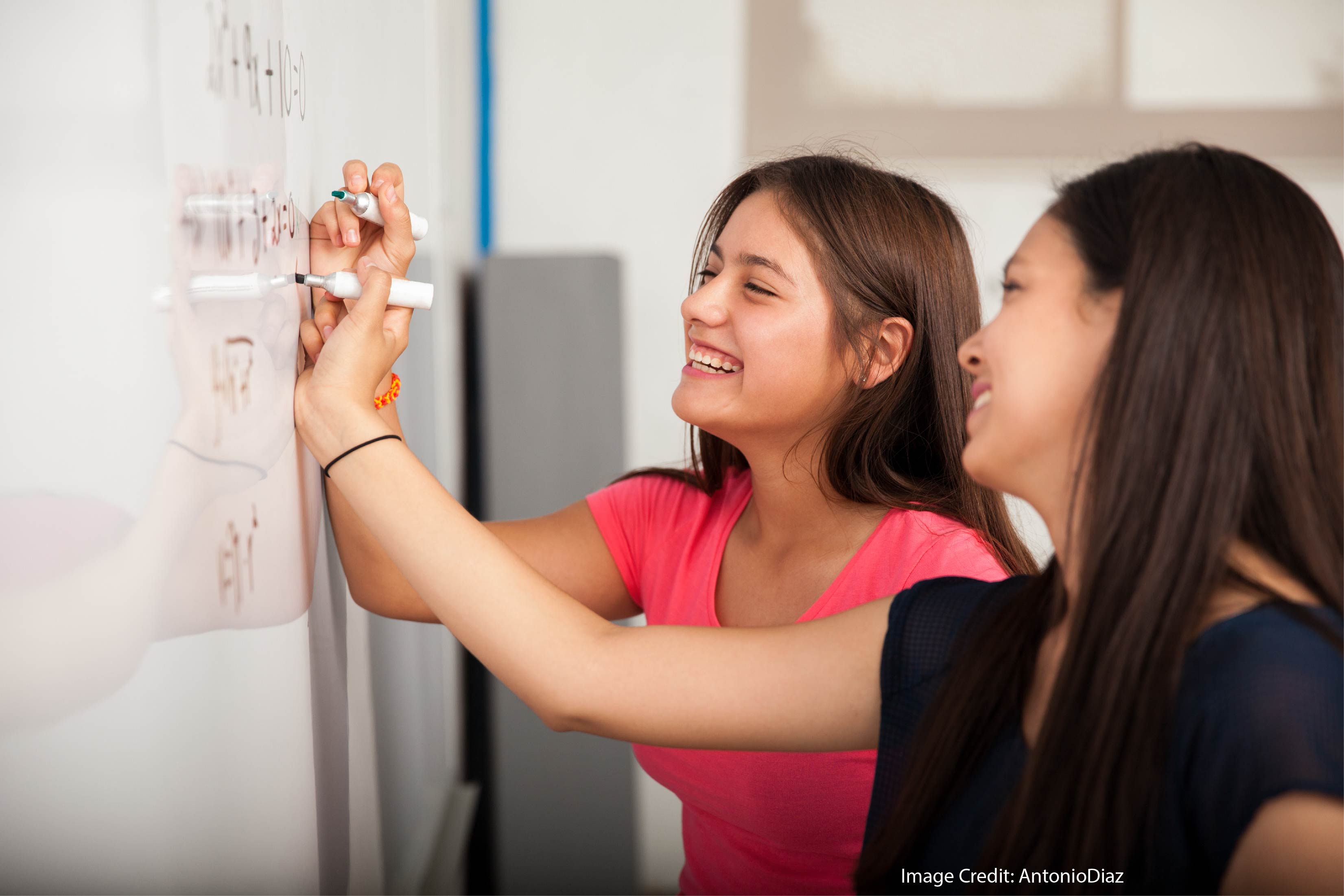
Should teachers show students how to solve a problem? Should we model the right way to do a task?
Or, should we let students figure solutions out on their own?
This set of questions has gotten LOTS of attention over the years. Sadly, as can happen all too often, the answers have become polarized.
You’ll read (emphatic) teaching advice that we must let students discover answers and processes on their own.
You’ll read (passionate) teaching advice that we have to explain and guide them every step of the way.
How can we escape from this all-or-nothing debate?
Asking a Better Question
Here’s one escape hatch: ask a more helpfully precise question.
In other words: the answer to the question “what’s the best way to teach my students X” is “it depends on your students.”
More specifically, it depends on your students’ level of expertise.
Once we rethink our teaching from this perspective, a common-sensical framework quickly comes into perspective.
“Beginners”–that is, students with little-to-no expertise–need lots of explicit instruction and guidance.
If we’re not there to shepherd them through the early stages, they’re likely to experience working-memory overload. (If you followed our series on working memory this summer, you know working memory overload is baaaaad.)
However, “experts”–that is, students who have gone beyond the foundations of the topic–can explore, invent, and discover on their own. In fact, they’re likely to be distracted by too much explanation.
That last sentence sounds very odd. Why would an “expert” be distracted by explanation?
Here’s why. If you understand a topic, and then listen to me explain it, you have to realign your understanding of it to match my explanation.
That realignment process takes up…you guessed it…working memory.
By the way: this sub-field of cognitive science has its own lingo to describe working memory in action. Right now I’m describing the expertise reversal effect: that is, teaching practices that benefit novices actually impede learning for experts.
An Example. Or Two.
In this study, researchers in Australia had students learn new procedures in geometry and algebra.
Beginners–those who didn’t yet understand much in these areas–benefited from examples showing how to solve the problems. That is: they did better than their beginner peers who didn’t get those example solutions.
However, experts–who understood much more in these areas–did not benefit from those examples. In fact, they might even have learned less.
Other researchers have found similar results for students studying Shakespeare.
One Final Point
If I’ve persuaded you that beginners need explicit instruction, whereas experts benefit from greater freedom to explore and discover, you’re likely to have this question:
How can I distinguish novices from experts?
That question deserves a post of its own. For the time being, I think the simplest answer is the most obvious: the teacher will know.
That is: if your teaching expertise says “these students are ready to struggle at this higher level,” then go for it. If your teaching expertise says “they really need more guided practice, more time with the scaffolds up,” then go that route instead.
We can get some guidance from psychology research in making these decisions. But, ultimately, we have to use our best judgment.





